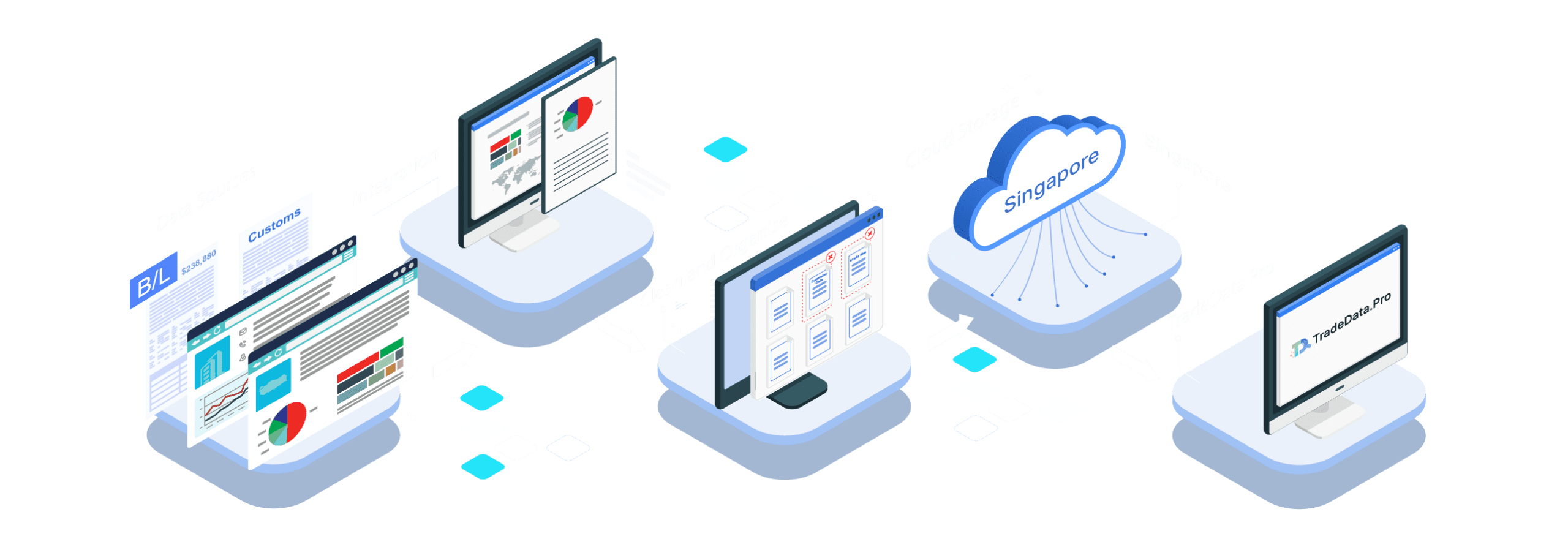Data Processing of Trade Data Customs Data Shipping Data - Trade Data Pro

Detailed Trade Data
Detailed Trade Data is vital for finding importers and exporters, monitor trade activities of competitors and gain in-depth market insights. Detailed Trade Data contains Bill of Lading information and shipment information which includes company details, value, quantity, HS Code and more. We provide detailed detailed trade data of 52 countries online, including Vietnam, Philippines, Russia, Turkey, Ukraine and many more. Detailed Trade Data is incredibly accurate with the exception of some countries whose regulations do not require fields such as values and quantity.
Corporate Data
Corporate data is collected from Legal firms, Local Entities and Official Business Registrations. Corporate data contains valuable information on corporations including financial statements, investors, trade records, business relationships and more. Corporate data is vital in decision making process as it enables you to get an accurate understanding of the corporation financials and business operations.
Statistical Data
Statistical Data collects detailed global annual and monthly trade statistics by product and trading partner. Statistical Data collected covers an estimated of over 200+ countries and represents almost the entire world's import and export trade. Statistical data gives you an overview of performance by industry or products and its partner countries on a monthly basis.
Shipment Data
Shipment data is collected from shipping companies. This is crucial for countries whose detailed trade data is not disclosed. We can make accurate assumptions based on the shipment data provided.
Process of Data Transformation
After the data cleansing stage, the data is stored in our centralised server which is located in our Singapore headquarters. The data is then uploaded onto our web-based application platform which offers an interactive interface which includes advanced filters, search functions and interactive visualisation charts.